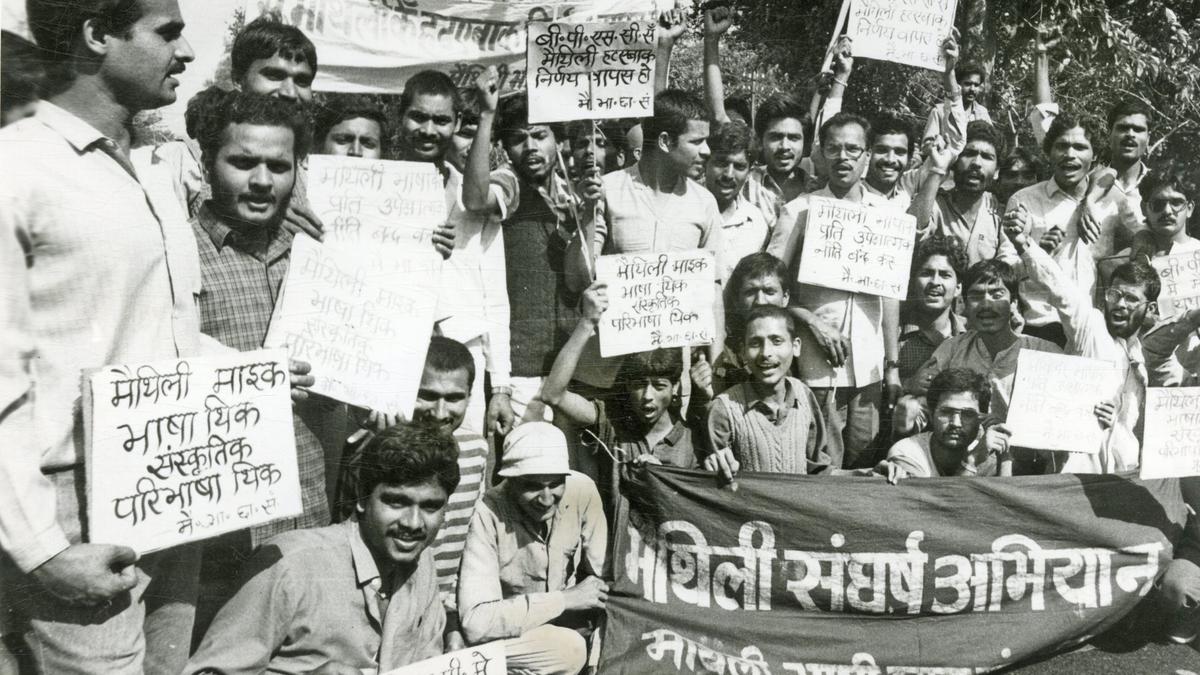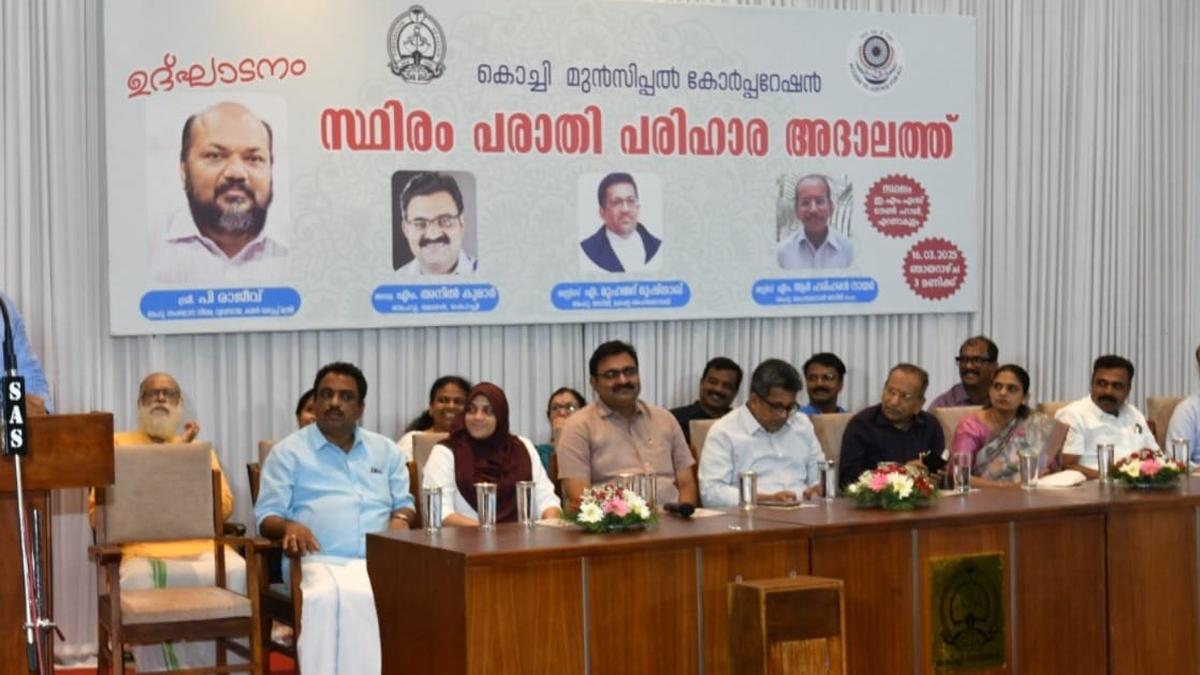
Activists of Maithili Sangharsh Abhiyan demonstrating to protest against the decision of Bihar Government to abolish Maithili Language from Bihar Public Service Commission on March 08, 1992.
| Photo Credit: The Hindu archives
While five languages were accorded the classical status earlier this month, Maithili, a language for which demands have been raised time and again missed out as the Bihar government had not forwarded the proposal officially.
The recommendation on according classical status for a language is taken by a special Linguistics Expert Committee, which comprises representatives of the Union Ministries of Home, Culture and four to five linguistic experts at any given time. It is chaired by the president of the Sahitya Akademi. The recommendation then has to be approved by the Union Cabinet following which a gazette notification is issued.

Sources in the linguistic committee told The Hindu that the proposal for Maithili had been forwarded by the Patna-based ‘Maithili Sahitya Sansthan’, but the same had not been forwarded to the Union Home Ministry by the Bihar government, which is the official procedure.
Thus, though the 300-page proposal for Maithili was discussed at the meeting of the Linguistics Committee, it could not be considered due to this technicality.
12 million speakers
According to the 2011 census, there were approximately 12 million Maithili speakers in India. Maithili was included in the Eighth Schedule of the Constitution as a recognised Indian language in 2003. It is included as an optional paper in the UPSC exam. In March 2018, Maithili received the second official language status in Jharkhand. Besides, Jharkhand and Bihar, it is the second most spoken language in Nepal.
The Janata Dal (United), which is a part of the ruling coalition in Bihar, had been consistent in its demand for classical language status for Maithili and reiterated the same on October 7, barely three days after the Union Cabinet cleared the same for the five languages.
JD(U) national working president and Rajya Sabha member Sanjay Jha, who also hails from “Mithilanchal”, made the call in a statement issued on X.
“Conservation and promotion of the Maithili language has been my top priority from the beginning. I had prepared the basis for including it in the category of classical language in the year 2018 itself. Due to my efforts, the expert committee of Maithili scholars constituted by the Central government made 11 recommendations in its report, which was completed on August 31, 2018. The first recommendation was — the Maithili language is about 1,300 years old, and its literature has been developing independently and continuously. Therefore, it should be placed in the category of classical language,” he said.

In a written reply in the Bihar Assembly in July, State Education Minister Sunil Kumar Singh, while asserting that the decision to accord classical status to languages was under the Central government, had assured that the Bihar Government would soon send the proposal to the Centre.
Among the five languages given classical status on October 3, the proposals for Assamese and Bengali had come from respective State governments as had been the case for Marathi which has been pending since 2014. Pali and Prakrit, the two other languages had been taken up suo motu in 2004 along with Sanskrit in the second or third meeting of the Linguistic Committee, sources told The Hindu. A senior member had raised the issue of recognition of Sanskrit, Pali and Prakrit as they were obvious cases of Classical Languages in India.
The committee after deliberations had recommended all three but only Sanskrit was declared in 2005. In the recent meeting of the linguistic committee, the older recommendation was picked up again.
Once a language is notified as a classical language, the Education Ministry provides certain benefits to promote it, which includes two major annual international awards for scholars of eminence in the said languages, a Centre of Excellence for studies in classical languages is set up and the University Grants Commission is requested to create, to start with at least in the Central Universities, a certain number of professional chairs for the classical languages so declared.
Published – October 30, 2024 02:47 am IST









![Best Weight Loss Supplements [2022-23] New Reports!](https://technologytangle.com/wp-content/uploads/2022/12/p1-1170962-1670840878.png)




